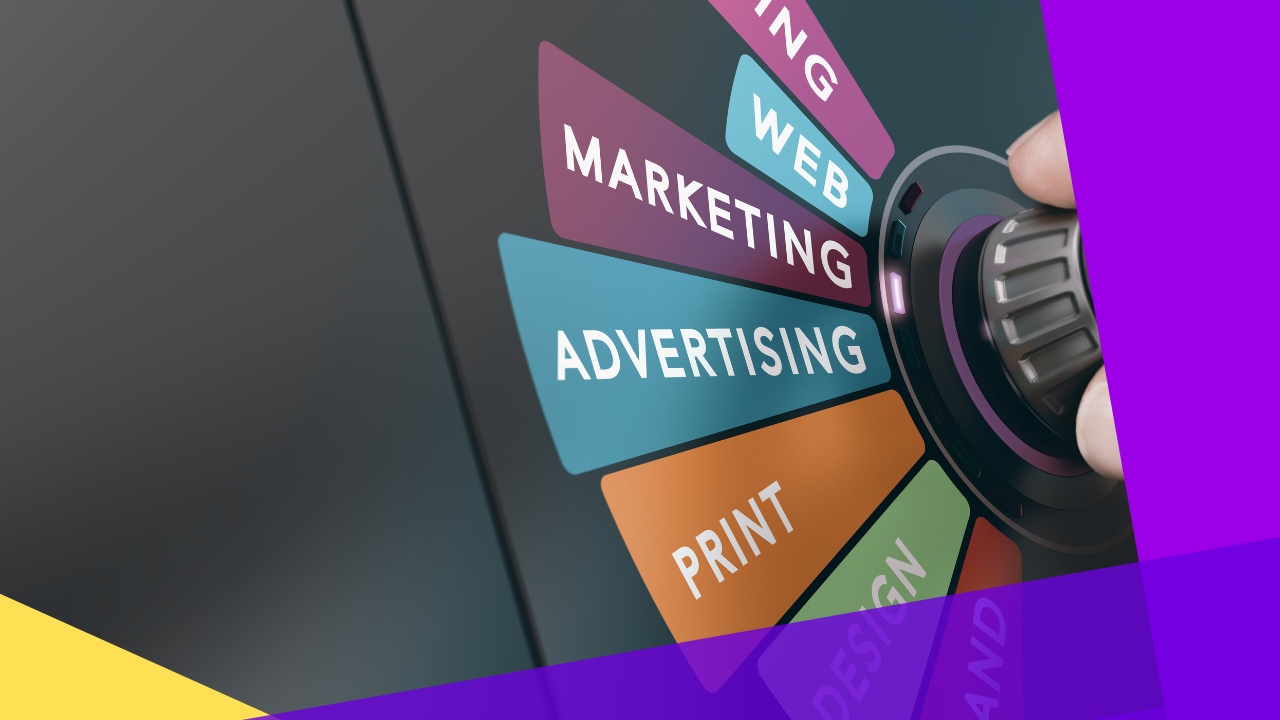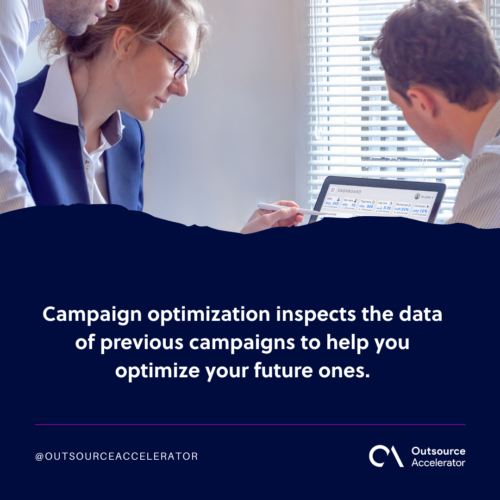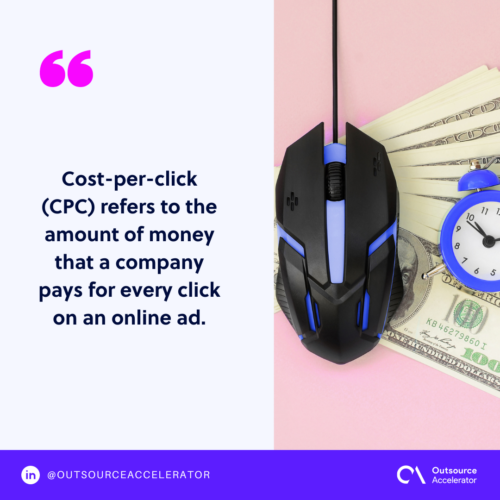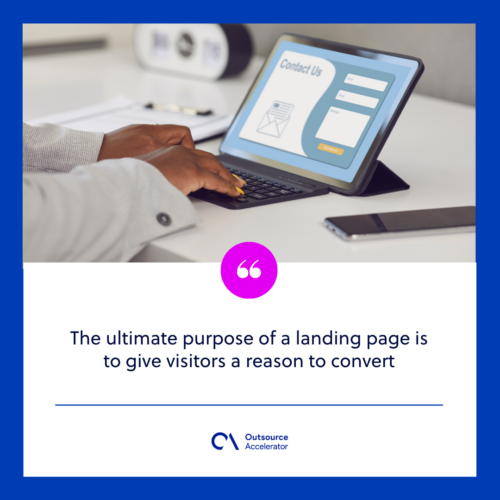Maximize your marketing with campaign optimization

The digital marketing scene is constantly changing. Platforms are born and die daily, and users become selective of what they put on their screens.
To stay competitive, you need continuous campaign optimization.
What is campaign optimization?
Campaign optimization adjusts your advertising and marketing campaigns in an attempt to improve their effectiveness.
A new campaign can be exciting, especially when you’ve devoted a lot of resources to it, but sometimes a business requires you to step back and see what works.
Campaign optimization inspects the data of previous campaigns to help you optimize your future ones. It’s especially helpful when making new ads, as it lets you experiment with different combinations of text, images, and call to action.
An optimized ad becomes a template to create similar ones for your other products and services.

How does campaign optimization work?
Campaign optimization works by changing one or more of the components of your existing ad to improve performance. You can also adjust aspects like targeting, budgeting, bids, and match types.
The trick is to find the right combination that works best for your business. Be reminded as well that campaign optimization works best when aiming for conversions, not just clicks.
When to optimize your campaign
Optimize your campaigns by paying attention to these qualities:
- Low click-through rates (CTR) or low conversion rates
- High cost per action (CPA)
- Low effective cost per action (eCPA)
You can consider implementing campaign optimization if your campaign has been running for a few weeks but hasn’t performed as expected. There are multiple reasons for campaigns to fail, so consider each of the factors involved.
Sometimes you may have multiple similar campaigns running at varying degrees of success, so try to note what works well.
Basic elements of campaign optimization
There are many different metrics used in campaign optimization, including:
Return on ad spend (ROAS)
Return on ad spend is calculated by dividing the total ad revenue by how much money was invested to run it. Similar to ROI, the resulting value gives you a measurement of your overall profits after expenses.
Your aim is for a positive ROAS, as a negative ROAS means you’re actually losing money.
Conversion rate
The conversion rate denotes the percentage of visitors who take a specific action on your website. An action could be downloading an ebook, purchasing a product, or accomplishing a contact form.
For any business that relies on its website, the conversion rate is one of the most important metrics to pay attention to.
Campaign optimization also focuses on improving the conversion rate by increasing visitors that take action. Aside from e-commerce websites, this metric may also apply to lead generation, subscriptions, and donation sites.
Cost-per-click
Cost-per-click (CPC) refers to the amount of money that a company pays for every click on an online ad. CPC determines a campaign’s effectiveness by comparing the cost-per-click to the number of actual clicks received.
Businesses don’t lose money if clicks don’t end up converting into leads or sales.
Related to CPC are impressions, where companies pay for their ad to appear on social networks. Impressions cost less than clicks due to there being no guarantee they will be clicked.

Campaign optimization best practices
Here are some campaign optimization best practices that will help you get the most out of your advertising.
Optimize your landing page
The ultimate purpose of a landing page is to give visitors a reason to convert. Well-designed, search-relevant pages are critical features of marketing and turning prospects into customers.
As part of campaign optimization, consider the following to update your landing page:
- Verify the website’s design by ensuring all relevant imagery, text, and graphics are working correctly.
- Test the landing page on different browsers and devices, especially mobile ones.
- Check all CTAs to make sure they lead properly to where you want users to take action.
Test ad designs and ad copy
You can test different combinations of ad designs, headlines, and images to see which ones perform the best. For copy, you can also test different pricing points as well as CTAs.
This is done by creating multiple variations of your ads and running them simultaneously for a limited time, like a week. A good strategy is to begin by making similar ads that differ in just one aspect, like the image or call to action.
This way, you’ll be able to easily pinpoint which design element works.
Target the right audience
Targeting the right audience and considering their response is critical to campaign optimization.
Don’t forget that your audience isn’t a single demographic but made up of multiple groups with a range of needs and interests. You may want to consider creating different campaigns for each segment.
Adjust your bid
A bid is the price you pay for your ad to be shown. The higher the bid, the more visible your ad will be. Feel free to adjust your bid during campaign optimization, especially if you pay too much for low impressions.
Adjust bids for different devices and locations as well. The advantage is that you’ll only end up paying for what is necessary.
Perform A/B tests on creatives
A/B testing is when you compare two creative variants (like an image, landing page, video, or website) to determine which performs better. The more data you have on this, the better you can optimize your campaign.
A/B testing gets you feedback from real users about what they think of your ads. It’s suggested to run A/B testing every few weeks to get enough data without exhausting your audience.

Why is campaign optimization important?
Campaign optimization can be of great benefit to your business by helping you:
- Find the right balance between cost and performance.
- Refine your targeting and reach out to new audiences.
- Get insights and store data on what works according to user behavior.
To ensure the success of your marketing campaigns, hire top-tier marketing experts through Boomering. Book your consultation and start maximizing your potential today!







 Independent
Independent




